Rotala L.
rotala
Lythraceae
Bacopa, Clinopodium, Cuphea, Didiplis, Elatine, Hemianthus, Hydrothrix, Lythrum, Mayaca, Micranthemum
almost cosmopolitancosmopolitan:
(adj) essentially worldwide in distribution
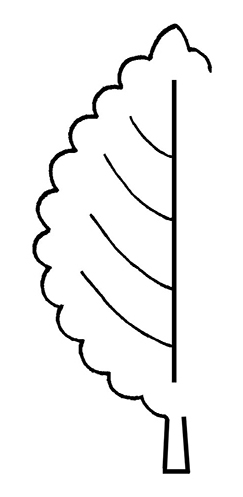
Rotala indica (Willd.) Koehne
R. macrandra Koehne
R. mexicana Schltdl. & Cham.
R. occultiflora Koehne
R. rotundifolia (Buch.-Ham. ex Roxb.) Koehne
R. wallichii (Hook. f.) Koehne
R. indica is recorded in rice fields in the United States (CA, LA), Europe (Italy, Portugal), and Africa (Congo); introduced in Australia, but not naturalized.
R. rotundifolia is introduced in the United States (AL, FL) and Australia.
Members of this genus are sometimes recorded as weedy in rice fields and irrigation ditches.
amphibiousamphibious:
(adj) of a plant able to live on land or in water
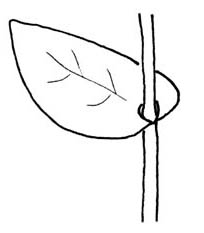 , creeping, erect or ascending stem plantstem plant:
, creeping, erect or ascending stem plantstem plant:
(n) (a term used in the aquarium and pond plant trade) having an elongate stem (as opposed to a compact stem)
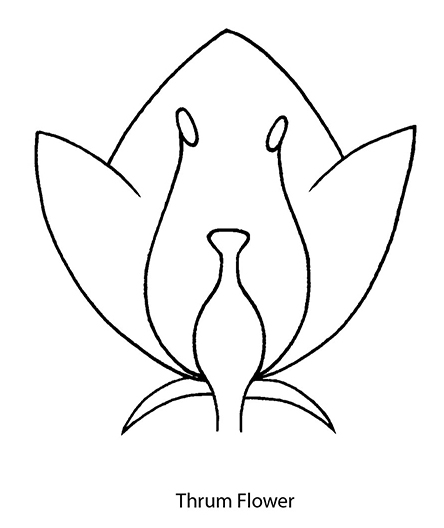
Stem erect, creeping or emergentemergent:
(adj) (syn. emersed) with parts raised out of the water; extending up out of the water
 . Leaves oppositeopposite:
. Leaves oppositeopposite:
(adj) (of leaves) two leaves per node; in pairs on opposite sides of an axis
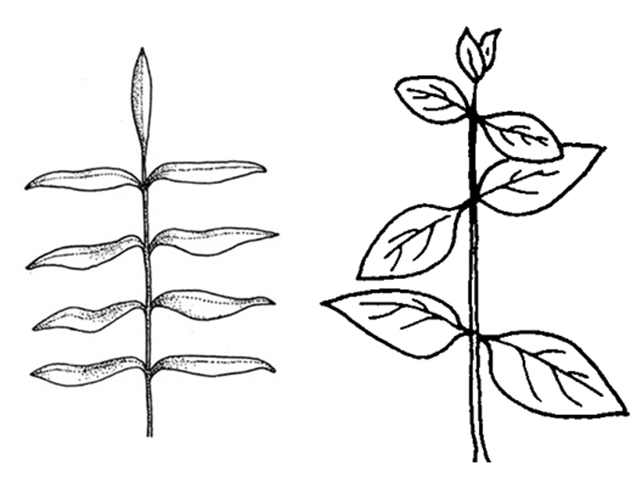 , decussatedecussate:
, decussatedecussate:
(adj) arranged along stem in pairs, with each pair at right angles to the pairs above and below
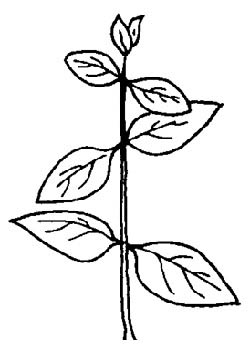 , sometimes whorledwhorled:
, sometimes whorledwhorled:
(n) bearing whorls; a type of leaf arrangement (phyllotaxis) in which leaves are in whorls
 , usually sessilesessile:
, usually sessilesessile:
(adj) attached directly, without a stalk
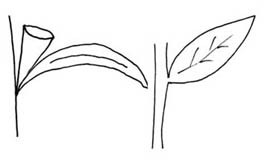 ; leaf bladeblade:
; leaf bladeblade:
(n) (syn. lamina) the flat, expanded part of a leaf, frond, or petal (excluding, e.g., the petiole)
 shape variable: capillarycapillary:
shape variable: capillarycapillary:
(adj) slender, hair-like
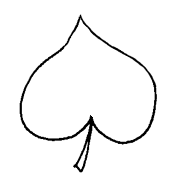 , oblongoblong:
, oblongoblong:
(adj) two to four times longer than wide, with +/- parallel sides
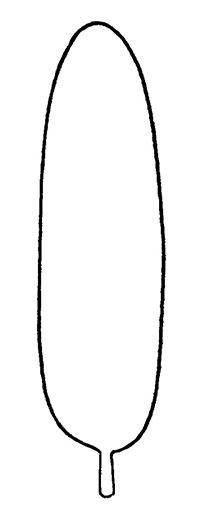 to ovateovate:
to ovateovate:
(adj) egg-shaped in outline; generally with the broad end at or near the base
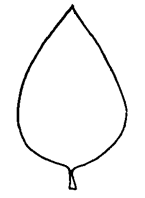 , green to dark red; distinctly heterophyllousheterophyllous:
, green to dark red; distinctly heterophyllousheterophyllous:
(adj) with dissimilar leaves on the same plant; often occurs on plants with both submersed and emersed leaves
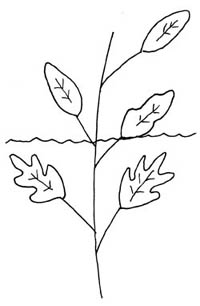 : submersedsubmersed:
: submersedsubmersed:
see submerged
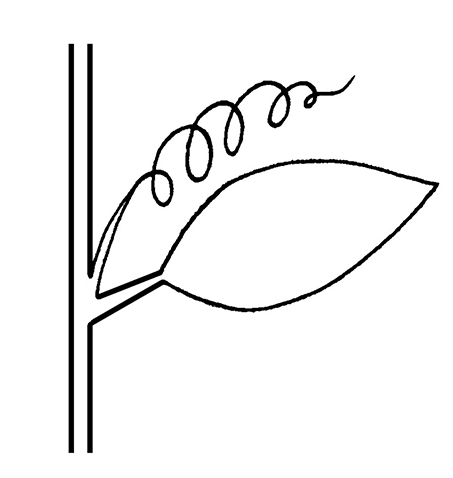 leaves typically narrower and thinner than emergentemergent:
leaves typically narrower and thinner than emergentemergent:
(adj) (syn. emersed) with parts raised out of the water; extending up out of the water
 leaves. Inflorescenceinflorescence:
leaves. Inflorescenceinflorescence:
(n) the arrangement of flowers on the floral axis
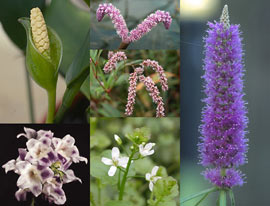 axillary or a spikespike:
axillary or a spikespike:
(n) an indeterminate, unbranching inflorescence of sessile flowers or flower clusters on a usually elongated axis
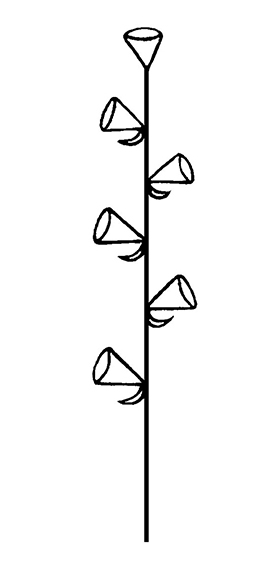 or racemeraceme:
or racemeraceme:
(n) an indeterminate, unbranched inflorescence having pedicelled flowers on a usually elongated axis (may be cymose)
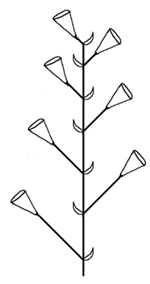 . Flowers actinomorphicactinomorphic:
. Flowers actinomorphicactinomorphic:
(adj) of flowers, having radial symmetry; capable of being bisected into identifical halves along more than one axis
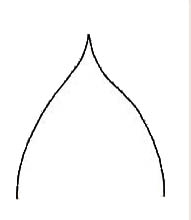 ; sepals fused, calyxcalyx:
; sepals fused, calyxcalyx:
(n) the outer whorl of the perianth; all the sepals of a flower
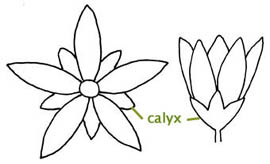 tube variously shaped, lobes usually 4; petals present, pink or white or absent. Dispersal by seed or stem fragments.
tube variously shaped, lobes usually 4; petals present, pink or white or absent. Dispersal by seed or stem fragments.
still, shallow waters and water margins, also wet soil
Rotala is a large genus of ca. 46 species, but only four or five are commonly traded in the industry under confirmed species names. Many other species are culitvated but specificspecific:
(adj) pertaining to a species
 names are unknown at present. Many species are wetland herbs. Rotala wallichii is easily differentiated by its needle-shaped submersedsubmersed:
names are unknown at present. Many species are wetland herbs. Rotala wallichii is easily differentiated by its needle-shaped submersedsubmersed:
see submerged
 leaves and white flowers. Rotala rotundifolia has ovateovate:
leaves and white flowers. Rotala rotundifolia has ovateovate:
(adj) egg-shaped in outline; generally with the broad end at or near the base
 to elongate submersedsubmersed:
to elongate submersedsubmersed:
see submerged
 leaves, ovateovate:
leaves, ovateovate:
(adj) egg-shaped in outline; generally with the broad end at or near the base
 emergent leaves, and pink flowers. Rotala macrandra has very broad ovateovate:
emergent leaves, and pink flowers. Rotala macrandra has very broad ovateovate:
(adj) egg-shaped in outline; generally with the broad end at or near the base
 leaves on submersedsubmersed:
leaves on submersedsubmersed:
see submerged
 and emergentemergent:
and emergentemergent:
(adj) (syn. emersed) with parts raised out of the water; extending up out of the water
 stems (wavy in submersedsubmersed:
stems (wavy in submersedsubmersed:
see submerged
 form) and lacks flower petals. Rotala mexicana has ovateovate:
form) and lacks flower petals. Rotala mexicana has ovateovate:
(adj) egg-shaped in outline; generally with the broad end at or near the base
 to narrow elongate leaves in both submersedsubmersed:
to narrow elongate leaves in both submersedsubmersed:
see submerged
 and emergentemergent:
and emergentemergent:
(adj) (syn. emersed) with parts raised out of the water; extending up out of the water
 forms and also lacks flower petals. Rotala rotundifolia is often sold as R. indica. Rotala sp. 'Nanjenshan' appears to be a possible natural hybridhybrid:
forms and also lacks flower petals. Rotala rotundifolia is often sold as R. indica. Rotala sp. 'Nanjenshan' appears to be a possible natural hybridhybrid:
(n) a specimen produced by the sexual reproduction of two plants of different species or subspecies
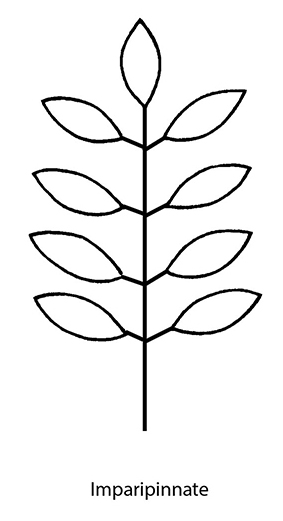 of R. wallichii and R. rotundifolia, known only from a single location in Taiwan. Rotala rotundifolia has distinct red and green leaved varieties.
of R. wallichii and R. rotundifolia, known only from a single location in Taiwan. Rotala rotundifolia has distinct red and green leaved varieties.